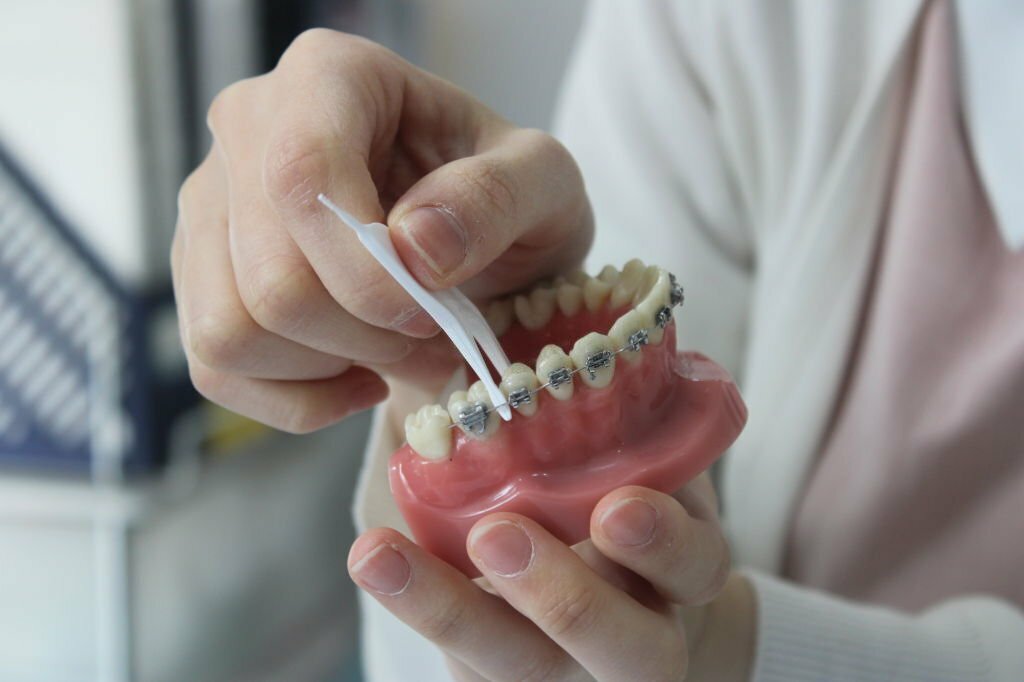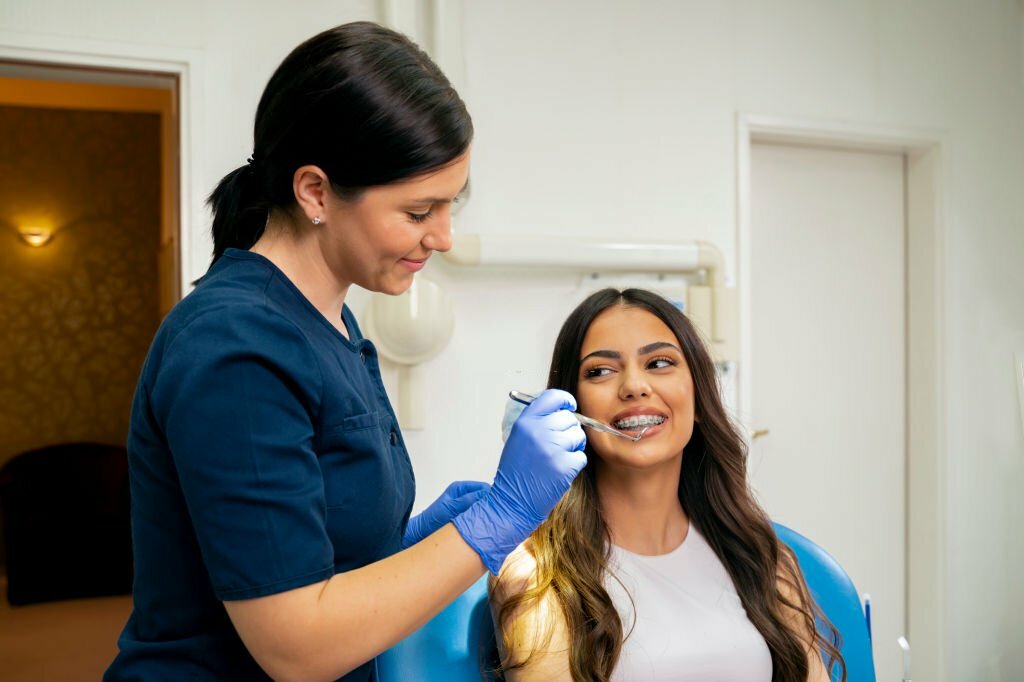Opting for braces is pain-free and effortless!
Yes, you read it right. Despite many rumors circulating online, there’s no pain in braces. While most people experience discomfort and some pain for a few days, it’s comparatively lower than the myths against it.
In this blog, we uncover the truth behind braces. Let’s explore the following sections:
- Different Stages Of Getting Braces
- What To Expect When You First Get Them?
- Does Teeth Braces Hurt?
- How To Stop Braces From Hurting – An Insight
Continue reading as we try to find the answer to the most queried question: Will braces pain?
Introduction:
Are you blessed with the perfect teeth?
If not, welcome to the braces club. Nearly four million American teenagers embrace braces to revamp their smile.
Sadly, despite increasing users, there’s always a common question: Do teeth braces hurt?
Let’s discover the truth behind this widely asked question in this blog.
Different Stages Of Getting Braces
Getting braces is a lengthy process that requires applicants to undergo several stages. Here’s an overview of what happens throughout the process:
Stage 1: When You First Get Them
While braces and pain are often interrelated, the truth is different. Getting braces on your teeth doesn’t hurt. Instead, it’s a relatively shorter process that takes over an hour or two.
When you visit an orthodontist, they’ll put bands around your back molars. This step will be followed by applying a special glue to your mouth to fix the position of the brackets.
Once the brackets are in position, your orthodontist will secure the tooth with braces by connecting the brackets with wires.
Finally, the orthodontist secures your braces with elastic bands.
Stage 2: The First Week Of Discomfort & Pain
As mentioned earlier, the application of braces is a pain-free and effortless procedure. However, things become challenging during the first week. It is during this time when you’ll experience the pain of braces.
You will experience discomfort and tenderness in your teeth and gums within a few hours. This pain will most likely last a week.
During that period, you will become accustomed to the sensation of your new braces. The wires and rubber bands pressure your teeth to straighten them gradually. This kind of pressure takes some getting accustomed to.
Here’s what you may experience during the first week of your braces:
- Soreness and pressure on your gums and teeth, especially while chewing.
- Pain or soreness on the insides of your checks
- Cuts or discomfort on your tongue while running it across new braces.
Such pain can typically be managed by teeth pain gel or other over-the-counter pain relievers suggested by your orthodontist.
Stage 3: When They’re Tightened
Many individuals have one question in common when opting for braces: ‘How to tighten braces?’
Interestingly, however, you needn’t! Braces help fix alignment issues by continually putting pressure on your teeth. Over time, your teeth start aligning in a straighter position.
 As mentioned earlier, you needn’t tighten your braces by yourself. Instead, your orthodontist will call you every few weeks for adjustments. During this time, they will evaluate your oral cavity and check the pressure produced.
As mentioned earlier, you needn’t tighten your braces by yourself. Instead, your orthodontist will call you every few weeks for adjustments. During this time, they will evaluate your oral cavity and check the pressure produced.
Tightening your braces might cause discomfort and soreness for a few days. The soreness should be less severe than when you initially put on your braces. However, if the pain becomes unbearable, it is best to consult your orthodontist for braces pain remedy.
Stage 4: When They’re Removed
The braces procedure stops once your teeth are aligned to perfection. After you’re in the final stages of treatment, your orthodontist will thoroughly clean your teeth and take another set of impressions or X-rays to determine the alignment. Once your dentist finalizes the time to take off your braces, you’re advised to visit your comfort dental orthodontist at regular intervals.
Wonder why?
Because your treatment isn’t over yet. Once the braces are off, your dentist will fit you for a retainer. These custom-made devices, generally prepared using plastic or rubber, work like pain relief braces to prevent your teeth from moving back to their original positions.
Does Teeth Braces Hurt?
Whether braces hurt or not depends entirely upon your oral condition.
In most cases, it’s normal for patients to feel mild discomfort while adjusting to braces. However, it is quite unusual for oral appliances to cause genuine agony.
Since braces are a must-have to align your teeth, most of the pain or soreness comes from the experience due to the tension and pressure placed on your teeth.
How To Stop Braces From Hurting – An Insight
Orthodontic treatment can occasionally result in headaches, swelling, or gum irritation.
This often leaves individuals wondering how to relieve the pain of braces. Interestingly, you needn’t undergo any fancy treatment to feel relieved. This section lists several treatment methods that you can follow for pain relief:
- Warm saltwater rinse – Add a teaspoon of salt into warm water and rinse thoroughly to subside the pain.
- Over-the-counter pain medications – Take the pain relief medications suggested by your orthodontist.
- Orthodontic relief wax – Orthodontic relief wax is another great option to reduce braces discomfort. Applying a small amount of relief wax can reduce the pain.
Takeaway
- Despite the number of rumors circulating online, there’s indeed no pain in braces.
- Nearly four million American teenagers embrace braces to revamp their smiles.
- Whether braces hurt or not depends entirely upon your oral condition.
- Orthodontic treatment can occasionally result in headaches, swelling, or gum irritation.
- Apart from the discomfort that you feel a few days after getting your braces, the pain subsides after every interval!


